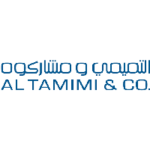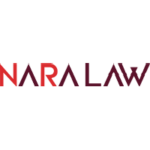-
Is the system of law in your jurisdiction based on civil law, common law or something else?
The modern sources of Ghanaian law are Ghana’s Constitution of 1992, legislation enacted by Parliament, the ‘existing law’ and the ‘common law’. The ‘existing law’ is the written and unwritten laws of Ghana in existence before the coming into force of the 1992 Constitution of Ghana. The common law of Ghana is a blend of the rules of law generally known as the common law, the rules generally known as the doctrines of equity and the rules of customary law including those determined by the Superior Court of Judicature.
-
What are the different types of vehicle / legal forms through which people carry on business in your jurisdiction?
Sole Proprietorship: This is an unincorporated business owned by a single person. The liability of a sole proprietor is unlimited and the owner bears full liability for all business matters.
Partnership: This is an association of a minimum of 2 and a maximum of 20 individuals doing business together. The members of the association are partners, and the terms and conditions of their arrangement must be documented in a Partnership Agreement.
Company Limited by Shares: A company limited by shares is a company which has the liability of its members limited to the amount unpaid on the shares respectively held by them.
Company Limited by Guarantee: A company limited by guarantee is a company which has the liability of its members limited to an amount that the members may respectively undertake to contribute to the assets of the company in the event of it being wound up. This vehicle is usually used by non-profits.
Unlimited Company: This is a company which does not have a limit on the liability of its members.
External Company: This is a branch, factory, mine, or any other established place of business in Ghana of a body corporate formed outside Ghana.
-
Can non-domestic entities carry on business directly in your jurisdiction, i.e., without having to incorporate or register an entity?
Depending on the business activities of the foreign entity and specific industry requirements, it may carry on business directly without incorporating or registering an entity in Ghana. In that case, the entity may operate through representatives or agents. Alternatively, they may consider setting up an external company, which is less onerous than incorporating a company limited by shares.
-
Are there are any capital requirements to consider when establishing different entity types?
Certain companies in which a foreign investor holds an interest may be required to meet a minimum capital threshold in accordance with the GIPC Act 2013 (Act 865), either in cash or capital goods relevant to the investment, or a combination of both. A breakdown of the equity participation by the foreigner is as follows:
- US$200,000 for joint venture with a Ghanaian partner having not less than 10% shares
- US$500,000 for wholly foreign-owned companies
- US$1,000,000 for general trading companies with a minimum of 20 skilled Ghanaians employed by such an enterprise
It is worth noting that companies involved in manufacturing, export trading and portfolio investments are exempted from complying with the minimum capital requirements.
-
How are the different types of vehicle established in your jurisdiction? And which is the most common entity / branch for investors to utilise?
All business entities are required to register with the Office of the Registrar of Companies (ORC). The registration process involves the completion of statutory forms disclosing information such as the name of the entity, nature of business and address of officers, submitting the forms along with other supporting documents, and paying the relevant statutory fees.
Sole proprietorships are registered in accordance with the Registration of Business Names Act 1962 (Act 151), partnerships are registered in accordance with the Incorporated Private Partnerships Act 1962 (Act 152) and companies are incorporated in accordance with the Companies Act 2019 (Act 992).
As is to be expected, the most common entity used by investors for running their business in Ghana is a company limited by shares.
The process for establishing a company in Ghana involves (a) conducting a search at the ORC to confirm that the intended name of the company is available and acceptable; (b) completion of statutory forms; (c) appointment of directors, secretary, auditor; (d) preparing a constitution for the company or opting for the default constitution provided under the Companies Act; (e) declaring beneficial owners, and (f) submitting the statutory forms and other supporting documents such as directors’ consent letters, statutory declaration form, and proof of identity to the ORC for registration. It is important to note that foreign directors, officers and beneficial owners are required to apply for Tax Identification Number (TIN) as part of the incorporation process.
After incorporation, there is a requirement to register the entity with other government regulators or authorities such as the Ghana Revenue Authority (GRA) and the Social Security and National Insurance Trust (SSNIT). The entity must also acquire a Business Operating Permit from the local assembly in whose jurisdiction it operates.
-
How is the entity operated and managed, i.e., directors, officers or others? And how do they make decisions?
Except as otherwise provided by the constitution of the entity, the directors are responsible for operating and managing the company. Other officers that support in operating the entity include the secretary, accountants, and other key personnel.
Decisions of the board are made at meetings by majority vote or by written resolutions. For written resolutions, it is important that they are signed by all directors to be valid. It is also important to note that unless otherwise provided under the company’s constitution, provided the board is acting within the powers conferred on it by the Companies Act and the company’s constitution, it is not bound to comply with the directions or instructions of the members at a general meeting.
It is worth noting that shareholders, while not responsible for the day-to-day management of a company, may influence its decision-making process through their right to attend and vote on resolutions at a company’s general meetings. They also have the power to appoint and remove auditors and directors.
-
Are there general requirements or restrictions relating to the appointment of (a) authorised representatives / directors or (b) shareholders, such as a requirement for a certain number, or local residency or nationality?
Companies are required to have at least two directors, subject to sector-specific requirements. One of these directors must be ordinarily resident in Ghana at all times. The minimum number of shareholders required is one, and there is no requirement for any shareholder to be resident in Ghana. Body corporates, persons of unsound mind, an undischarged bankrupt and individuals convicted of fraud, dishonesty or an offence relating to the formation of a company are disqualified from being appointed as directors.
-
Apart from the creation of an entity or establishment, what other possibilities are there for expanding business operations in your jurisdiction? Can one work with trade /commercial agents, resellers and are there any specific rules to be observed?
Businesses are permitted to work with trade agents or resellers. There are no specific laws governing this kind of arrangement in Ghana. As such, the common law rules regarding agency would typically apply. For example, under common law, an agent is required to carry out the instructions of the principal, exercise care and diligence in carrying out his work, render proper accounts when required, disclose any conflict of interest among others. Likewise, the principal is required to pay the agent the agreed remuneration and to indemnify and reimburse the agent for acts done in exercise of his duties.
-
Are there any corporate governance codes or equivalent for privately owned companies or groups of companies? If so, please provide a summary of the main provisions and how they apply.
Companies are governed by the tenets of the Companies Act and corporate governance codes. An example of a corporate governance code is the National Corporate Governance Code for Ghana (i.e., the “National Code”) which was launched in 2022. Although the National Code is not binding, it sets a national standard of best corporate governance principles and practices in all forms of organisations, including the private and public sectors. The National Code is underpinned by three core values which are Patriotism, Accountability and Responsibility. According to the National Code, companies are expected to follow fundamental principles such as effective, accountable, and ethical leadership, robust risk systems and internal controls and effective stakeholder relationship.
There are also industry specific codes. For instance, the Securities and Exchange Commission (SEC) has issued directives governing the conduct of the affairs of publicly listed companies known as The Corporate Governance Code For Listed Companies. The Bank of Ghana issued a Ghana Corporate Governance Disclosure Directive (May 2022), which applies to Regulated Financial Institutions (RFI).
-
What are the options available when looking to provide the entity with working capital? i.e., capital injection, loans etc.
Availability of working capital Type of entity Self-financing including capital raised through personal income, friends and family Sole proprietorship Partnership
Companies
Loans from banking and microfinance institutions Sole proprietorship Partnership
Companies (depending on the value of the loan, board or shareholder approval may be required to enter into loan agreements of significant amounts)
Capital injections from investors, sale of shares, angel investors and venture capital Companies -
What are the processes for returning proceeds from entities? i.e., dividends, returns of capital, loans etc.
Dividends
Where applicable, profits made from entities are paid to the shareholders through payment of dividends. A company may not pay a dividend to the shareholders unless the company has complied with the distribution test. The distribution test includes circumstances where (a) a company is able to pay its debts as they fall due; and (b) the amount or value of any payment, return or distribution made by the company does not exceed its retained earnings immediately before the making of the payment, return or distribution.
In the case of a private company, subject to the constitution of the company, it may by ordinary resolution declare dividends in respect of a year or any other specified period. Dividend should not exceed the amount recommended by the directors. Further, in relation to public companies, payment of interim dividends is permitted. A dividend shall be paid within sixty days after the resolution of the shareholders confirming payments or after dividends have become payable. Where a dividend is to be paid, the shareholders shall be notified of the amount of dividend recommended by directors for payment.
A registered constitution of a company may prescribe modes for the payment of dividend without reference to the resolution of the shareholders. A company limited by guarantee is not permitted to pay dividend or make a distribution or return of the assets of the company to the members of the company.
Reduction of stated capital
A reduction in capital occurs when a company reduces the amount on its stated capital. The stated capital of the company may be reduced by special resolution of the shareholders.
Loans
A company may advance loans to shareholders who may genuinely be employed by the company or an associated company. The purpose of such loan will be for that person to purchase or subscribe for shares to be held by themselves beneficially and not as nominees for the company or any other person. Doing this may require a resolution of the company in accordance with the registered constitution of the company.
-
Are specific voting requirements / percentages required for specific decisions?
Decisions by shareholders are passed in two ways:
- By ordinary resolution – decisions passed by a simple majority of votes of the members. Some decisions made by ordinary resolution include declaration of dividends, appointment and removal of directors, approval for directors to exceed the powers conferred on them by the Companies Act or the constitution of the company and approving the remuneration and other benefits of directors and auditors.
- By special resolution – decisions passed by not less than three-fourths or 75% of the votes of the members. Some decisions passed by special resolution include amending the constitution of the company to change the business activities or objects of the company, voluntary winding-up and approval of major transactions of the company.
-
Are shareholders authorised to issue binding instructions to the management? Are these rules the same for all entities? What are the consequences and limitations?
Decisions required to be made by shareholders under the Companies Act or the company’s constitution are generally binding on management. However, subject to the company’s constitution, it is permissible for the board of directors to not comply with the directions or instructions of the members in a general meeting provided the board is acting within the powers conferred on them by the Act or the constitution of the company.
Also, the shareholders on their own, can make decisions or take actions that bind the entire company only where all the shareholders have unanimously agreed to take such action or decision. The decisions or actions that shareholders can unanimously agree to include but are not limited to the issue of shares by the company, the making of a distribution by the company, the repurchase or redemption of shares in the company.
This form of unanimous agreement is only applicable to private companies. A unanimous agreement by the shareholders is validly authorised by the company despite any provision in the registered constitution of the company. The provisions of constitutions of private and public companies limited by shares as well as those of private companies limited by guarantee, will not apply to actions taken unanimously by shareholders.
-
What are the core employment law protection rules in your country (e.g., discrimination, minimum wage, dismissal etc.)?
The 1992 Constitution guarantees freedom from discrimination. Individuals are protected from being discriminated against on grounds of gender, race, colour, ethnic origin, religion, creed or social or economic status.
Furthermore, the Labour Act, 2003 (Act 651) and the Labour Regulations 2007 (LI 1833) are the key legislation regulating labour matters in Ghana.
The labour laws guarantee adequate protection for employees in respect of the following:
Rights/ Protection Details 1. Leave Entitlement Every worker is entitled to not less than fifteen working days leave with full pay in any calendar year of continuous service 2. Maximum Hours of Work Typically, the hours of work of a worker shall be a maximum of eight hours a day or forty hours a week 3. Maternity leave Women are entitled to a period of maternity leave of at least twelve weeks in addition to any period of annual leave they are entitled after they give birth 4. Working conditions It is the right of a worker to work under satisfactory, safe and healthy conditions 5. Remuneration and Fair pay Workers are entitled to receive equal pay for equal work without distinction of any kind. Workers are entitled to receive remuneration for their work which includes the minimum wage or salary and any additional emoluments. The current National Daily Minimum Wage in Ghana is GHC 19.97
6. Rest and paid public holidays Workers in Ghana have a right to have rest, leisure and reasonable limitation of working hours and period of holidays with pay as well as remuneration for public holidays
7. Development of skills Workers are authorised to be trained and retained for the development of his or her skills 8. Fair/unfair termination Workers are protected from unfair termination of employment on grounds related to trade union activities, discrimination, pregnancy, disability, lawful strikes, ill treatment of worker or sexual harassment. It is important to ensure that any termination of employment is fair and done according to fair procedures including giving appropriate notices, fair hearing (if applicable) and payment of remuneration upon termination.
9. Redundancy Workers are entitled to severance pay if their employment is terminated as a result of any major changes in the structure or organisation of an undertaking. 10. Pension contributions Employers are required to pay pension contributions on behalf of employees -
On what basis can an employee be dismissed in your country, what process must be followed and what are the associated costs? Does this differ for collective dismissals and if so, how?
Termination and dismissals
While the grounds for termination of employment are stipulated in the Labour Act 2003 (Act 651), there is no specific provision on dismissals and the procedure for doing so. In Ghana, the courts have sought to draw a distinction between the concepts of “termination” and “dismissal” and the grounds on which employees may be dismissed. A dismissal can be occasioned by gross misconduct.
In George Akpass v Ghana Commercial Bank (unreported) SC, 16 June 2021, Civil Appeal No. J4/08/2021, the Supreme Court explained that unlike termination, for dismissals a notice is not required to be given to the employee. The worker is not entitled to any benefits after dismissal either.
Despite an employer having the right to dismiss an employee on any of the grounds mentioned above, it is important that any due process laid down in employment contracts, handbooks, or collective agreements such as disciplinary procedures are complied with to ensure that the dismissal is fair.
There are no associated costs for dismissing an employee if the process is done fairly. However, in the event that there is a dispute regarding the dismissal, the employer may be liable to pay the employee all remuneration, entitlements and benefits that the employee would have otherwise been entitled to, if it is ruled that the dismissal was unfair or wrongful.
Collective dismissals
Collective dismissals are akin to redundancies in Ghana and not the same as dismissal in the sense explained above. It is necessitated when employers contemplate the introduction of “major changes in production, programme, organisation, structure or technology of an undertaking that are likely to entail terminations of employment of workers in the undertaking” are considered redundancy in Ghana.
To effect a redundancy, the following process must be completed:
- Notify the Chief Labour officer and trade union concerned, in writing, no later than three (3) months before the contemplated changes; and
- Consult the trade union concerned on the measures to be taken to avert or minimise the termination as well as measures to mitigate the adverse effects of any terminations on the workers concerned, such as finding alternative employment.
According to Act 651, employees are entitled to ‘redundancy pay’ when major changes in the business cause them to become unemployed. Further, the amount of redundancy pay, and the terms and conditions of payment are matters which are subject to negotiation between the employer and the employees.
The obligations employers have towards employees in a redundancy exercise do not apply to workers engaged under a contract of employment for a specified period of time, employees serving a probationary period, or casual workers. A casual worker is a worker who is engaged seasonally or intermittently, not for a continuous period of more than six months and whose remuneration is calculated on a daily basis.
-
Does your jurisdiction have a system of employee representation / participation (e.g., works councils, co-determined supervisory boards, trade unions etc.)? Are there entities which are exempt from the corresponding regulations?
Every worker has the right to form or join a trade union of his or her choice for the promotion and protection of the worker’s economic and social interests. This right notwithstanding, workers whose function is normally considered as policy making; decision making; managerial; holding a position of trust; performing duties that are of highly confidential nature; or an agent of a shareholder of an undertaking, are exempted from forming or joining trade unions.
-
Is there a system governing anti-bribery or anti-corruption or similar? Does this system extend to nondomestic constellations, i.e., have extraterritorial reach?
There is no single established system or legislation specifically for anti-bribery or corruption in Ghana. However, the principal laws on anti-corruption can be found in the Criminal and Other Offences Act 1960 (Act 29).
The various offences in Act 29 relevant to anti-bribery and anti-corruption are as follows:
- Bribery of a public officer.
- Acceptance of a bribe by a public officer and a promise of bribe to a public officer in the performance of his/her duties
- Corruption of a judicial officer
- Corruption and intimidation in respect of a public election
- Bribery of an agent (or someone acting for another) to compel or induce the agent to show favour or disfavour to any person in relation to the agent’s principal’s affairs.
Furthermore, the Office of the Special Prosecutor Act, 2017 (Act 959) intensifies the anti-corruption efforts by investigating and prosecuting specific cases of alleged or suspected corruption involving public officers and politically exposed persons as well as persons in the private sector involved in commission of alleged or suspected corruption related offences. The Office of the Special Prosecutor is also mandated to recover the proceeds of corruption and corruption-related offences and to take steps to prevent corruption.
Section 46 of the Criminal Procedure Code (Act 30) permits an act committed outside Ghana which if done in Ghana would have been an offence to be tried in Ghana and for the accused to stand trial. This can be interpreted to mean that a person who engages in corruption outside the country may be tried in Ghana and the earnings and proceeds from the corrupt activities recovered.
-
What, if any, are the laws relating to economic crime? If such laws exist, is there an obligation to report economic crimes to the relevant authorities?
The Economic and Organised Crime Office Act, 2010 (Act 804) is a specialised agency to monitor and investigate economic and organised crime in Ghana and on the authority of the Attorney-General prosecute these offences to recover the proceeds of crime. The Economic and Organised Crime Office (EOCO) is the principal body established to prevent and detect organised crime and generally to facilitate the confiscation of the proceeds of crime.
The Anti-Money Laundering Act, 2020 (Act 1044) (the “Money Laundering Act”) consolidates the laws relating to the prohibition of money laundering, other related matters and the establishment of the Financial Intelligence Centre (FIC) to assist in fighting money laundering and other offences.
According to the Money Laundering Act, certain categories of businesses including financial institutions and professionals including lawyers and accountants (known as Accountable Institutions) must submit a suspicious transaction report to the FIC where they know or reasonably suspect that:
- An individual, a business entity, an accountable institution or a trust has received or is about to receive the proceeds of unlawful activity, or
- A transaction to which a business entity is a party
- facilitated or is likely to facilitate the transfer of the proceeds of unlawful activity,
- has no apparent business or lawful purpose,
- is conducted to avoid or give rise to a reporting duty under the Money Laundering Act,
- may be relevant to an investigation into tax evasion or an attempt to evade the payment of tax, duty or a levy imposed by legislation, or has been used or is about to engage in money laundering.
Accountable Institutions must submit a suspicious transaction report to the FIC within twenty-four hours after the knowledge or the ground for suspicion of the transaction.
Additionally, individuals who become aware of economic crimes are also encouraged to report to EOCO or the Ghana Police Service.
-
How is money laundering and terrorist financing regulated in your jurisdiction?
The ambit of the money laundering laws is wide in that persons who actually launder money, aid and abet in money laundering and conspire to launder money commit an offence under the law.
A person commits the offence of money laundering in if he/she knows or ought to have known that the property is, or forms part of, the proceeds of unlawful activity and the person:
- Converts, conceals, disguises or transfers the property for the purpose of
- Concealing or disguising the illicit origin of the property; or
- Assisting any person who is involved in the commission of the unlawful activity to evade the legal consequences of the unlawful activity.
- Conceals or disguises the true nature, source, location, disposition, movement or ownership of, or rights to, the property; or
- Acquires, uses or takes possession of the property knowing or suspecting at the time of receipt of the property that the property is, or forms part of the proceeds of unlawful is or forms part of proceeds of unlawful activity.
Where a court establishes that property was acquired through money laundering the property is then confiscated by the state. The Financial Intelligence Centre was created to assist in identification of proceeds of unlawful activity, assist in combating money laundering and terrorists financing amongst other mandates. A person found guilty of money laundering is liable to be imprisoned for 12 months but not more than 10 years, a fine of between 100% to 500% of the proceeds of money laundering or both. A corporate entity may also be fined a minimum of 300% of the proceeds of money laundering.
EOCO is one of the agencies empowered with detecting, monitoring money laundering and terrorist financing. The powers of EOCO include seizure of tainted property, search powers, freezing of property, confiscation orders, pecuniary penalty orders.
- Converts, conceals, disguises or transfers the property for the purpose of
-
Are there rules regulating compliance in the supply chain (for example comparable to the UK Modern Slavery Act, the Dutch wet kinderarbeid, the French loi de vigilance)?
There is not a single comprehensive legislation regulating compliance in the supply chain. However, there may be relevant sections in enactments such as the Children’s Act, 1998 (Act 560) Criminal Offences Act (Act 29) and Human Trafficking Act, 2005 (Act 694). For example, section 87 of the Children’s Act prohibits exploitative child labour, sections 14 and 116 of the Labour Act prohibit restrictive conditions of employment and forced labour respectively and section 314 of the Criminal Offences Act criminalises slave dealing.
-
Please describe the requirements to prepare, audit, approve and disclose annual accounts / annual financial statements in your jurisdiction.
Companies are required to prepare financial statements in compliance with International Financial Reporting Standards adopted by the Institute of Chartered Accountants, Ghana or any other standards approved or adopted by the Institute. The statements must be prepared within 18 months for newly incorporated companies and subsequently, at least once in every calendar year.
The financial statements must be approved by the board of directors and signed by two directors on behalf of the board. It is required that the financial statements along with the directors’ and auditors report are circulated to the members of the company. Subsequently, unless an annual general meeting (AGM) is dispensed with by the auditors and the members, it is required that the financial statements and reports are considered by the members and debenture holders at the AGM.
Companies are also required to file the financial statements and the reports mentioned, along with their annual return at the Registrar of Companies typically in practice latest by April in the following year after the end of the financial year.
The annual return is a document that provides information such as particulars of every member and beneficial owner of the company, particulars of shares, financial statements, the company’s indebtedness, and date of the last AGM held by the company. Once the return is submitted to the ORC, it is registered and notice of the registration is published in the Companies Bulletin. Companies may issue, publish, or circulate their financial statements only after the financial statements have been approved by the board of directors and signed accordingly.
In the exercise of its powers under the Companies Act 2019, the Office of the Registrar of Companies (ORC) has recently established a classification of companies for the purposes of exemptions and waivers for filing annual returns under the Companies Regulations 2023 (L.I. 2473).
The classification is as set out below:
COMPANY CATEGORIES REVENUE ASSETS Small GHS 0 – GHS 400,000 GHS – 400,000 Medium GHS 400,001 – GHS 10,000,000 GHS – 400,001 -GHS 10,000,000 Large Above GHS 10,000,000 Above GHS 10,000,000 Based on the above classification, companies described as small or medium are exempted from the requirement of filing annual returns. Small or medium companies are only required to confirm the accuracy of the information of the company contained in the Register.
Small companies are also exempted from having their financial statements audited by an auditor and the publication of a report by their auditors. Small companies will only be subject to an auditor review by the company’s auditors in accordance with International Standards on Review Engagements and other standards for the audit of less complex entities issued by the International Audit and Assurance Standards Board.
In the place of a report of auditors, only a brief report on the financial statement of the company prepared by the internal auditor of the company will be provided for small companies.
-
Please detail any corporate / company secretarial annual compliance requirements?
Companies are generally expected to comply with the following annual requirements:
- Holding an annual general meeting unless dispensed with by the members and auditors.
- Holding at least two (2) board meetings in a year for the directors to consider the financial and operational affairs of the company.
- Filing annual returns and financial statements of the company (subject to the exceptions stated in answer to question 21).
- Filing of tax returns.
-
Is there a requirement for annual meetings of shareholders, or other stakeholders, to be held? If so, what matters need to be considered and approved at the annual shareholder meeting?
Companies are required to hold Annual General Meeting (AGM) at least once every year, and the period between one AGM and the next shall not be more than 15 months apart.
Newly registered companies are required to hold an AGM within 18 months of incorporation. Nevertheless, the members of the company who are entitled to attend and vote at such meetings and the auditors may agree in writing to dispense with an AGM in any given year. Typically, in such cases, decisions are passed by members through written resolutions signed by all the members.
The matters that may be discussed at an AGM include declaring dividends, consideration of the financial statements and reports of the directors and auditors, the election and removal of directors and auditors, remuneration of auditors, and instituting legal proceedings to enforce liabilities against a director.
-
Are there any reporting / notification / disclosure requirements on beneficial ownership / ultimate beneficial owners (UBO) of entities? If yes, please briefly describe these requirements.
The law on beneficial owners requires that the company discloses its ultimate beneficial owners. This has been introduced into the Companies Act in an attempt to increase transparency with respect to the registration and affairs of companies in Ghana. According to section 126 of the Companies Act, 2019 (Act 992), a company, in submitting annual returns, must include particulars of every beneficial owner (“BO
The Companies Act defines a “beneficial owner” as an individual who
- Directly or indirectly exercises substantial control over the company;
- Otherwise have a substantial economic interest in or the right to receive substantial economic benefits from a company whether acting alone or together with other persons; or
- On whose behalf a transaction is being conducted;
- Exercises ultimate effective control over a legal person or legal arrangement/company.
That said, the guidance notes on beneficial ownership (as issued by the Registrar of Companies) also provide that a beneficial owner must be declared where they directly or indirectly ultimately hold an interest in the company of:
- 5% or more ownership threshold for beneficial owners of companies classified under high-risk sectors (including the financial, oil, mining, and telecommunication sectors).
- 5% or more ownership threshold for beneficial owners who are non-Ghanaian politically exposed persons.
- Any amount, however small, for beneficial owners who are Ghanaian politically exposed persons.
- 20% or more ownership threshold for all other case.
The information of BOs required to be disclosed include their full names, date and place of birth, nationality, proof of identity including passport details, residential and occupational addresses, nature of interest in the company and a confirmation as to whether the individual is a politically exposed person.
-
What main taxes are businesses subject to in your jurisdiction, and on what are they levied (usually profits), and at what rate?
Main tax
The main tax businesses are subject to in Ghana is corporate income tax (CIT). This tax is imposed on companies incorporated under the laws of Ghana. CIT is applied on the company’s taxable profits. CIT also applies to branch companies whose profits are not repatriated to the head office established outside Ghana. The current general CIT rate is 25%. However, the rate of tax may vary depending on the nature of the business carried out by the company, the location of the business and the specific industry in which it operates. Some of the current rate of tax for 2024 – 2025 include:
Industry/Nature of business Rate of % tax Income of a trust 25 Company principally engaged in the hotel industry 22 Free Zone Enterprises after 10 years tax holiday (on domestic sales) 25 Free Zone Enterprises after 10 years tax holiday (on export of goods and services) 15 Petroleum Income Tax 35 Mineral Income Tax 35 Other taxes or levies applicable to businesses in Ghana include the following:
- Growth and Sustainability Levy (GSL). This levy was introduced in April 2023 by the Growth and Sustainability Levy Act, 2023 (Act 1059) to raise revenue for growth and fiscal sustainability of the economy. The levy is applied on the Profit Before Tax (PBT) or Gross Production of businesses. The rate of levy for a business depends on the category in which they are allocated as provided for in the GSL Act.
Category Rate of Levy Category A 1. Banks
2. Non-Bank Financial Institutions
3. Telecommunications companies liable to collect and pay the Communications Service Tax under the Communications Service Tax Act, 2008 (Act 754)
4. Breweries
5. Inspection and valuation companies
6. Companies providing mining support services
7. Bulk Oil Distributors
8. Oil Marketing Companies
9. Communication Tower Operators
10. Companies providing upstream petroleum services
11. Companies and institutions registered by the Securities and Exchange Commission
12. Specialised Deposit-Taking Institutions
13. Electronic Money Issuers
14. Shipping lines, maritime and airport terminals
5% of Profit Before Tax Category B Mining companies and upstream oil and gas companies
1% of gross production Category C All other entities not falling within Category A or Category B
2.5% of profit before tax That GSL Act indicates that the provisions apply irrespective of any existing concessions or agreements to the contrary. The levy is due for payment on a quarterly basis, i.e. by 31 March, 30 June, 30 September, and 31 December each year. The Levy is intended to run from the 2023 to 2025 Years of Assessment.
- Financial Sector Recovery Levy (FSRL). This levy was introduced in 2021 under the Financial Sector Recovery Levy, Act 2021 (Act 1067) to impose a special levy on banks to raise revenue to support the financial sector reforms. The FSRL is 5% on the profit before tax of a bank other than a rural bank or a community bank. The FSRL Act indicates that it applies irrespective of any tax holiday or exemption from direct tax or an indirect tax applicable to a bank. The FSRL is payable on a quarterly basis during the year (i.e. by 31 March, 30 June, 30 September, and 31 December). It is expected to expire at the end of 2024. (NB: as at the time of writing, no review of the FSRL had been published by the Minister of Finance.
- Value Added Tax (VAT) is a tax levied on the sale of goods and services in Ghana. It is a small amount added to the final price of a product or service, which a business owner collects and remits to the Ghana Revenue Authority.
- National Health Insurance Levy (NHIL). Similar to VAT, NHIL is a tax added to the price of goods and services in Ghana. NHIL is set at 2.5%.
- Covid – 19 Health Recovery Levy. This is tax implemented to support the nation’s recovery from the Covid – 19 pandemic. It is charged 1%
- Ghana Education Trust Fund Levy (GETFL). The GETFL is a tax levied on the supply of goods and services in Ghana to support the development and delivery of quality education at all levels. It is charged at 2.5%
- Tourism Levy. This is payable by a patron of the tourism industry. It is charged at 1%.
-
Are there any particular incentive regimes that make your jurisdiction attractive to businesses from a tax perspective (e.g. tax holidays, incentive regimes, employee schemes, or other?)
Tax Holidays
Certain business and industries may benefit from tax holidays or reductions in Ghana. Some of these include:
Business/industry Incentive Free zone developers or industries 10 year tax holiday for the first ten years from the date of commencement of operations Residential Premises Tax at 5% for the first 5 years of assessment Agro processing Payment of 1% tax in the first five years Rural banking Payment of 1% tax in the first ten years Waste processing Payment of 1% tax in the first ten years Incentive regimes
Under the Ghana Investment Promotion Centre Act, 2013 (Act 865), enterprises registered by the Centre are entitled to the benefits such as:
- Exemption from import duties and related charges on the plant and machinery or equipment or the parts of the plant, machinery or equipment if the enterprises’ plant, machinery, equipment or parts of the plant, machinery or equipment are not zero-rated under the Customs Harmonised Commodity and Tariff Code.
- Incentives available to strategic or major investments which are negotiated between the investor and Government. Strategic investments may entitle the investor to incentives packages in addition to the incentives available to a company under the tax, customs and other laws.
-
Are there any impediments / tax charges that typically apply to the inflow or outflow of capital to and from your jurisdiction (e.g., withholding taxes, exchange controls, capital controls, etc.)?
Exchange and capital controls
While there are no restrictions on goods being imported into Ghana, since the enactment of the Foreign Exchange Act, 2006 (Act 723) certain restrictions are imposed on the movement of capital to and from Ghana.
For example, the Act provides that any payment in foreign currency to and from Ghana between a resident and non-resident or between non-residents shall be made through a bank. Furthermore, each payment must be made through a person licensed to carry out the business of money transfers or any other authorised dealer. An exporter who fails to repatriate proceeds from merchandise exports through an external bank commits an offence and is liable for imprisonment or fines.
Generally, the movement of the money outside Ghana is heavily regulated by the central bank. For example, businesses are able to freely send outward remittances of USD 10,000 or less without restrictions. However, where the sum of money is more than USD 10,000 per year the banks in Ghana will usually require documentation showing where and why the money is being repatriated.
Withholding Taxes
The rate of withholding taxes depends on the residency of a person in Ghana. For non-resident persons, the current rate of withholding taxes are as follows:
Income Rate % Dividends 8 Management and Technical services 20 Goods, works or any services 20 Royalties, natural resources payments and rents 15 Income from telecommunication and transportation business 15 Payments to petroleum subcontractors 15 Repatriated branch after tax profits 8 Interest income (excluding individuals) 8 General insurance Premiums 5 -
Are there any significant transfer taxes, stamp duties, etc. to be taken into consideration?
The rate of stamp duty generally depends on the value of the document. Typically, they range from 0.25% – 1%. There are a number of general exemptions from Stamp Duties some of which include:
- Transfers of shares in the Government stocks or funds of a foreign country
- Transfers of shares in unit trusts
- Transfers of loan capital
- All bankruptcy or insolvency documents
- Transfers of shares in a company
- Bills of exchange including cheques, bank drafts or orders and letters of credit issued by a banker in Ghana.
-
Are there any public takeover rules?
The Securities and Exchange Commission (SEC) Code on Takeovers and Mergers (the “Takeover Code”) is the law that regulates the procedures and obligations to be complied with during such transactions involving public companies. It applies to all takeovers and mergers where the target company is a public company and all takeovers and mergers between or among public companies, whether listed or unlisted. Some of the rules for public takeover include:
- Threshold – acquisition or intention to acquire more than 30% but less than 50% of the voting shares of a public company in any 12 month period or acquisition or intention to acquire 50% or more of the voting shares of the public company, or acquisition of a company that holds effective control in the public company or together with the shares already held resulting in acquiring effective control of the public company.
- Offer to shareholders – No person can acquire effective control over a target company unless such person makes the same offer to all shareholders of the same class of such company.
- Notification – any person (the Offeror) making a takeover offer shall make an announcement of his or her intention in a newspaper of general circulation, provided however, that such announcement shall not be made until the bidder has the resources to implement the offer in full. This must be done prior to the commencement of the offer. The notice must be given to the SEC, within 24 hours after the resolution of the board of the company to acquire the target company.
- Obligations of the offeree: Upon receiving the Offeror’s statement, the board of the Offeree company must inform SEC and make a press notice of the proposed takeover offer within 24 hours of receipt of the offer.
- Takeover Offer Document: Generally, the Offeror shall within 10 days from submitting the Offeror’s statement submit the Takeover Offer Document to the SEC for approval.
A brief overview of the other relevant sector specific laws includes but are not limited to:
- The Companies Act 2019 (Act 992) is the primary legislation for mergers and acquisitions in Ghana. It provides for schemes of arrangement and amalgamation as the modes of achieving business combinations for companies incorporated in Ghana. These schemes are found primarily in sections 238 to 260 of the Companies Act. They may begin on shareholders’ special resolution with or without court approval and registration with the Registrar of Companies.
- The Banks and Specialised Deposit-Taking Institutions Act 2016 (Act 930) and the Mergers and Acquisitions Directive. This applies to mergers involving banks and specialised deposit taking institutions and are governed by the central bank, Bank of Ghana
- The Petroleum (Exploration and. Production) Act, 2016, (Act 919). This applies to upstream oil and gas exploration and requires a contractor or sub-contractor to seek the written approval of the Minister or the Commission in order to transfer its shares to a third party.
- Insurance Act, 2021 (Act 1061). Insurance companies are expected to seek prior written approval of the National Insurance Commission before acquisition of regulated insurance companies.
- National Communications Authority Act, 2018 (Act 769). This provides guidance for merger and acquisition activities particularly as they related to network operators.
-
Is there a merger control regime and is it mandatory / how does it broadly work?
Currently, there is no general merger control in Ghana. The sector specific requirements in response to question 29 will typically govern the amalgamation or mergers of private and public companies in Ghana.
-
Is there an obligation to negotiate in good faith?
There is the general duty of honest dealing which encompasses good faith in the sense that there must be faithful performance of duties. The common law principles of misrepresentation, duress and undue influence typically also apply in negotiations. Parties are free to include provisions in the agreements which may require them to apply best or reasonable good faith efforts in negotiating.
-
What protections do employees benefit from when their employer is being acquired, for example, are there employee and / or employee representatives’ information and consultation or co-determination obligations, and what process must be followed? Do these obligations differ depending on whether an asset or share deal is undertaken?
This is most likely to arise where there is a trade union and the collective bargaining agreement with the union includes consultation on acquisition or merger of companies.
Generally, employees are entitled to redundancy pay in the event the employer contemplates the introduction of major changes in production, programme or structure of the undertaking, and such major change in production, programme or structure leads to terminations. This could include an amalgamation, close down or arrangement of the company in which they are employed. The process for a redundancy in Ghana is described in the response to question 15.
The obligations are the same irrespective of whether it is an asset or share deal. In so far as the acquisition will lead to termination of the employees, the process outlined above must be followed.
-
Please detail any foreign direct investment restrictions, controls or requirements? For example, please detail any limitations, notifications and / or approvals required for corporate acquisitions.
Companies in which foreign investors hold an interest may be required to meet a minimum threshold in order to do business in Ghana as described in the response to question 4.
Other restrictions are sector specific and the approvals for corporate acquisitions are discussed in response to questions 29 & 30 and the general restrictions and controls in response to question 27. Furthermore, the 1992 Constitution of Ghana mandates that an international business or economic transaction to which the government of Ghana is a party must be ratified by Parliament.
There are no limits or prior exchange control approvals for listed companies in Ghana. Therefore, non-residents can now invest in Ghana with no limits or prior exchange approval.
-
Does your jurisdiction have any exchange control requirements?
See response to question 27.
-
What are the most common ways to wind up / liquidate / dissolve an entity in your jurisdiction? Please provide a brief explanation of the process.
The winding up of a company may be done in one of two ways:
- by a private/voluntary liquidation in accordance with the Companies Act ,2019 (Act 992) or;
- by an official liquidation in accordance with the Corporate Insolvency and Restructuring Act, 2020 (Act 1015)
Private/Voluntary Liquidation
A voluntary liquidation occurs when a company is still a going concern. A voluntary or private winding up is a self-imposed dissolution, triggered by reasons other than debt, that has been approved by the shareholders with a special resolution. The procedure is broadly as follows:
- The board of directors of the company declare an affidavit with a statement of the company’s assets and liabilities deposing that the company will be able to pay its debts and liabilities in full within twelve (12) months from the commencement of the winding up.
- The shareholders of the company will then pass a special resolution stating that the company is to be wound up by way of a voluntary liquidation. The special resolution must include the named person appointed as the liquidator who must consent to the appointment.
- The winding up commences on the date that the resolution is passed, and within fourteen (14) days of the passing of the resolution a copy shall be sent to the Registrar who shall publish it in the Companies Bulletin. Once the resolution is passed the company shall cease to carry on business operations except what may be required for the benefit of winding up. However, the corporate status and powers will remain.
- Upon passing of the resolution every invoice, order or business communication from or on behalf of the company which contains the company’s name must also contain a statement that the company is being wound up voluntarily.
- The liquidator prepares the final accounts of the company and present to the shareholders before submitting same to the Registrar for registration.
- On completion of the liquidation, the Registrar will strike out the name of the company off the register of companies and publish that the company is being wound up in the Companies Bulletin.
Official Liquidation
An official liquidation is usually initiated because a company is no longer a going concern. The official liquidation is conducted in accordance with the Corporate Insolvency and Restructuring Act, 2020 (Act 1015).
Modes of winding-up by Official Liquidation:
- special resolution of the company;
- petition addressed to the Registrar;
- petition to the Court;
- conversion from a private liquidation; or
- conversion from administration or restructuring of the company.
Official Winding-up by Special Resolution
The process is broadly as follows:
- The shareholders pass a special resolution stating that the company shall be wound-up by way of an official winding-up. A copy of the special resolution and the notice of the meeting shall be served on the Registrar.
- The Registrar or a designated representative shall be afforded the opportunity to attend the meeting at which the special resolution is passed, and a copy sent to the Registrar.
- The Registrar will then publish the resolution in the Companies Bulletin after receipt of the resolution.
- The creditors of the company may nominate and appoint a person to be a liquidator for the purpose of winding-up the affairs and distributing the assets of the company.
- The Official Liquidator will then take immediate control of the assets of the company.
- When satisfied that the official winding-up of a company is complete, the Registrar shall strike the name of the company off the register and notify that fact in the Companies Bulletin and in a daily newspaper of national circulation.
Official Winding-up by petition to the Registrar
The process is broadly as follows:
- A creditor, a member or contributory of a company shall present a petition to the Registrar for the official winding up of the company.
- The Registrar shall order the official winding up of the Company on the petition if the registrar is satisfied that the company is unable to pay its debts. The Registrar shall take into consideration the contingent and prospective liabilities of the company.
- The Petitioner shall serve a copy of the petition on the company on or before the day on which the petition is presented to the Registrar.
- The creditors of the company may nominate and appoint a person to be a liquidator for the purpose of winding-up the affairs and distributing the assets of the company.
- The Registrar shall place on record a copy of the winding-up order for the company concerned and publish the order in the Companies Bulletin.
- When satisfied that the official winding-up of a company is complete, the Registrar shall strike the name of the company off the register and notify that fact in the Companies Bulletin and in a daily newspaper of national circulation.
Ghana: Doing Business In
This country-specific Q&A provides an overview of Doing Business In laws and regulations applicable in Ghana.
-
Is the system of law in your jurisdiction based on civil law, common law or something else?
-
What are the different types of vehicle / legal forms through which people carry on business in your jurisdiction?
-
Can non-domestic entities carry on business directly in your jurisdiction, i.e., without having to incorporate or register an entity?
-
Are there are any capital requirements to consider when establishing different entity types?
-
How are the different types of vehicle established in your jurisdiction? And which is the most common entity / branch for investors to utilise?
-
How is the entity operated and managed, i.e., directors, officers or others? And how do they make decisions?
-
Are there general requirements or restrictions relating to the appointment of (a) authorised representatives / directors or (b) shareholders, such as a requirement for a certain number, or local residency or nationality?
-
Apart from the creation of an entity or establishment, what other possibilities are there for expanding business operations in your jurisdiction? Can one work with trade /commercial agents, resellers and are there any specific rules to be observed?
-
Are there any corporate governance codes or equivalent for privately owned companies or groups of companies? If so, please provide a summary of the main provisions and how they apply.
-
What are the options available when looking to provide the entity with working capital? i.e., capital injection, loans etc.
-
What are the processes for returning proceeds from entities? i.e., dividends, returns of capital, loans etc.
-
Are specific voting requirements / percentages required for specific decisions?
-
Are shareholders authorised to issue binding instructions to the management? Are these rules the same for all entities? What are the consequences and limitations?
-
What are the core employment law protection rules in your country (e.g., discrimination, minimum wage, dismissal etc.)?
-
On what basis can an employee be dismissed in your country, what process must be followed and what are the associated costs? Does this differ for collective dismissals and if so, how?
-
Does your jurisdiction have a system of employee representation / participation (e.g., works councils, co-determined supervisory boards, trade unions etc.)? Are there entities which are exempt from the corresponding regulations?
-
Is there a system governing anti-bribery or anti-corruption or similar? Does this system extend to nondomestic constellations, i.e., have extraterritorial reach?
-
What, if any, are the laws relating to economic crime? If such laws exist, is there an obligation to report economic crimes to the relevant authorities?
-
How is money laundering and terrorist financing regulated in your jurisdiction?
-
Are there rules regulating compliance in the supply chain (for example comparable to the UK Modern Slavery Act, the Dutch wet kinderarbeid, the French loi de vigilance)?
-
Please describe the requirements to prepare, audit, approve and disclose annual accounts / annual financial statements in your jurisdiction.
-
Please detail any corporate / company secretarial annual compliance requirements?
-
Is there a requirement for annual meetings of shareholders, or other stakeholders, to be held? If so, what matters need to be considered and approved at the annual shareholder meeting?
-
Are there any reporting / notification / disclosure requirements on beneficial ownership / ultimate beneficial owners (UBO) of entities? If yes, please briefly describe these requirements.
-
What main taxes are businesses subject to in your jurisdiction, and on what are they levied (usually profits), and at what rate?
-
Are there any particular incentive regimes that make your jurisdiction attractive to businesses from a tax perspective (e.g. tax holidays, incentive regimes, employee schemes, or other?)
-
Are there any impediments / tax charges that typically apply to the inflow or outflow of capital to and from your jurisdiction (e.g., withholding taxes, exchange controls, capital controls, etc.)?
-
Are there any significant transfer taxes, stamp duties, etc. to be taken into consideration?
-
Are there any public takeover rules?
-
Is there a merger control regime and is it mandatory / how does it broadly work?
-
Is there an obligation to negotiate in good faith?
-
What protections do employees benefit from when their employer is being acquired, for example, are there employee and / or employee representatives’ information and consultation or co-determination obligations, and what process must be followed? Do these obligations differ depending on whether an asset or share deal is undertaken?
-
Please detail any foreign direct investment restrictions, controls or requirements? For example, please detail any limitations, notifications and / or approvals required for corporate acquisitions.
-
Does your jurisdiction have any exchange control requirements?
-
What are the most common ways to wind up / liquidate / dissolve an entity in your jurisdiction? Please provide a brief explanation of the process.























